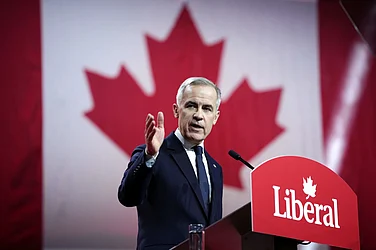As tensions between India and Pakistan escalate, the United Nations Security Council allegedly raised tough questions for Islamabad and its alleged involvement in the Pahalgam Attack of April 22.
The 15-nation Security Council held closed deliberations to address the flaring tensions between India and Pakistan. However, as per reports by ANI and PTI, the meeting, which was called at the request of Pakistan, resulted in the nation being questioned over its alleged involvement in cross-border terrorism.
Due to the nature of the meeting, no official statement was issued by the UNSC apart from its call for restraint.
Sources told news agency ANI that Pakistan was bombarded with questions as the UNSC members refused to "Accept the false flag narrative" set by the country. UNSC members also allegedly questioned the involvement of the Lashkar-e-Taiba and Islamabad's close ties with the terrorist organisation.
Despite Pakistan's denial, India has claimed its has clear evidence of Islamabad backing cross-border attacks in Jammu and Kashmir. Reports further added that India has expressed readiness for a "neutral" third-party investigation supervised by international powers such as Russia and China.
As per PTI reports, sources claimed that UNSC members also called for Pakistan to work out its issues with India through a bilateral means.
바카라 was unable to independently verify the veracity of these developments.
What Has Pakistan Claimed?
As per Pakistan and its Permanent Representative to the United Nations Ambassador Asim Iftikhar Ahmad, the country's objectives were “largely served and achieved” at the UNSC meeting.
"Several [council] members recognised the imperative of peacefully resolving all issues, including the Jammu and Kashmir dispute, in accordance with UNSC resolutions and the wishes of the Kashmiri people,” Iftikhar was quoted as saying by Dawn.
“There was also a clear sense that regional stability cannot be sustained through unilateralism, it requires principled diplomacy, engagement and adherence to international law," he added further.
Indo-Pak Tensions Reach Boiling Point
Tensions between India and Pakistan reached a boiling point after a terror attack in Jammu and Kashmir's Pahalgam resulted in the death of 26 civilians. While India has alleged Pakistan and LeT's involvement in the attack, both parties have dismissed the allegations.
Following the attack, which is the deadliest the valley has seen since the 2019 Pulwama strike, India downgraded its ties with Pakistan by closing the Attati-Wagah border, cancelling visas, deporting Pakistani nationals in India, reducing and expelling diplomatic staff, and suspending the key Indus Waters Treaty of 1960.
In response, Pakistan ordered a tit-for-tat visa cancellation, suspended trade ties and the Simla Agreement of 1972 which called for a bilateral dialogue between the two nations and brought an end to the Indo-Pak war of 1971. Both nuclear-armed nations are now bracing for an attack or major escalation, prompting India to call for nationwide mock drills to prepare its civil defences.














